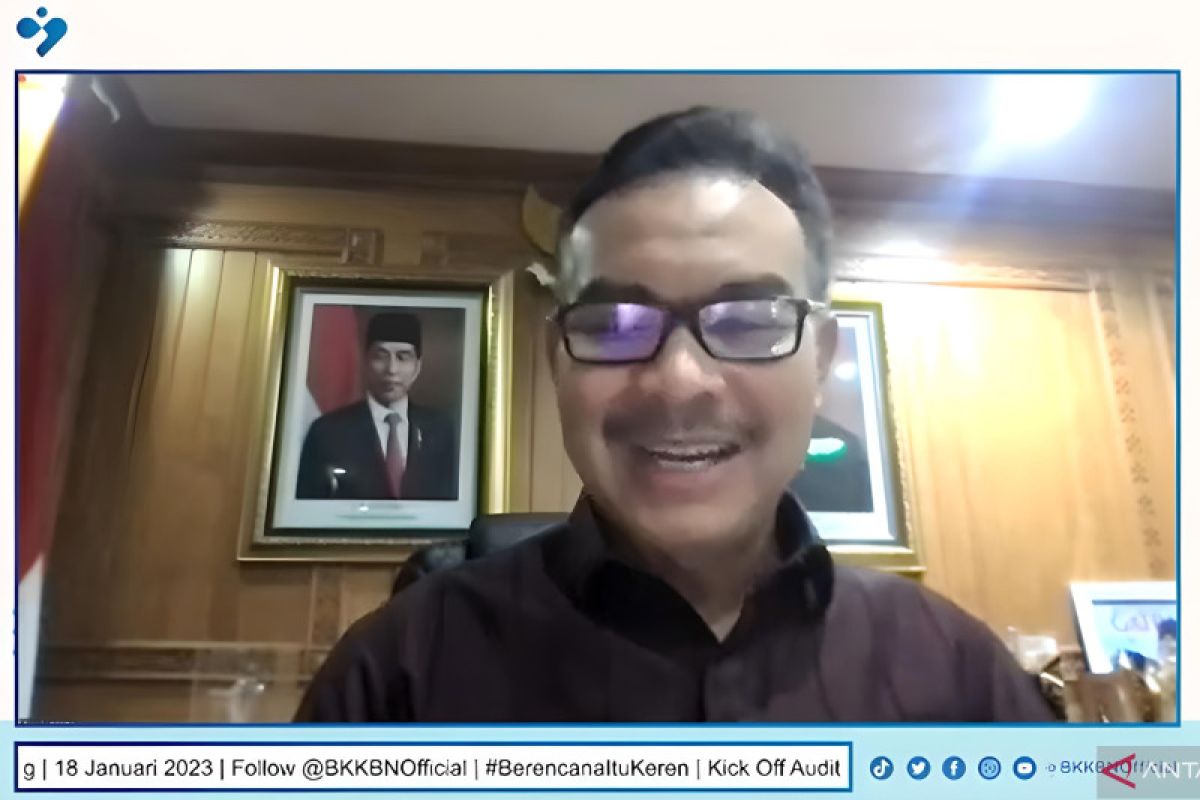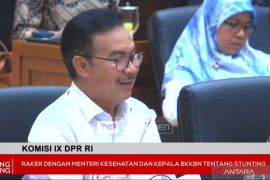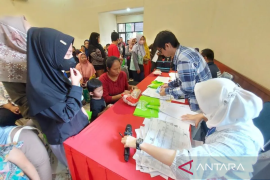We are determined to carry out this activity earlier to make the budget absorption work effectively, find cases earlier, and resolve them quickly.Jakarta (ANTARA) - The National Population and Family Planning Agency (BKKBN) will focus on strengthening the stunting audit in 2023 to determine the exact cause of childhood stunting in Indonesia.
“We are determined to carry out this activity earlier to make the budget absorption work effectively, find cases earlier, and resolve them quickly,” BKKBN head Hasto Wardoyo said at the kick-off of the “Stunting Case Audit” in Jakarta on Wednesday.
The mandate regarding the audit of stunting cases is outlined in Presidential Regulation Number 72 of 2021 on the National Action Plan to Accelerate Stunting Reduction (RAN PASTI), he noted. The audit that will be carried out is a clinical audit, which will be conducted by the audit team and the stunting reduction acceleration team (TPPS).
After tracing and mapping cases that have proved difficult to resolve, the team will make a report to experts to obtain an appropriate stunting alleviation recommendation, either for sensitive or specific interventions, he informed.
For example, if stunting is known to be the result of tuberculosis (TB), then the experts who will provide the recommendations will be doctors or the Health Service and Community Health Centers (puskesmas).
Meanwhile, toddlers and families who are at risk of stunting will receive assistance from the family assistance team (TPK) as a form of sensitive intervention, Wardoyo said.
For example, if the results of an audit show that a child is stunted because of contact with an unsanitary environment, then the team will record data that will be registered with a Public Worker and Public Housing Service (PUPR) for arranging assistance.
He said that the provision of recommendations and consultations with experts will also continue to be coordinated with the local governments and the Health Ministry.
"This clinical problem is not the authority of TPPS anymore. But from the Ministry of Health, Health Service, and other providers. Therefore, as a bridge between cases that must be handled clinically, specific factors must be found in cases through the TPPS process. This encourages cases that are difficult to report to be submitted to the stunting case audit team," he explained.
He said that the medical and clinical audits of stunting cases have clear functions and objectives. Apart from encouraging awareness on recognizing stunting, audits are also useful as a reference for stunting handling in the future.
He noted that the audits of stunting cases were started only in April 2022. Therefore, there are many regions that have not yet undertaken them.
He pointed out that a number of regions that have started to audit stunting cases have absorbed their budgets well, such as Yogyakarta, South Sulawesi, Central Java, North Maluku, Jakarta, Gorontalo, and Riau.
Meanwhile, the regions that have not completed 50 percent of stunting case audits are West Sulawesi, Jambi, Lampung, East Java, North Sulawesi, Bali, Aceh, Banten, North Sumatra, and East Nusa Tenggara (NTT).
"With this audit of stunting cases, hopefully, it will make a major contribution to stunting reduction in Indonesia and solve underlying problems and underlying diseases that we can tackle earlier," he disclosed.
Related news: Strengthening audits could prevent stunting cases in future: BKKBN
Related news: Regional heads know actions needed to end extreme poverty: President
Related news: Poverty not the chief cause of stunting: BKKBN
Translator: Hreeloita Dharma S, Resinta S
Editor: Azis Kurmala
Copyright © ANTARA 2023












